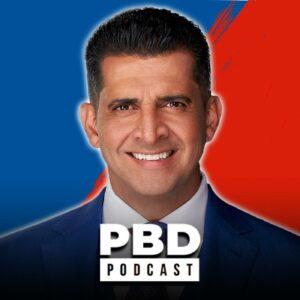
In this episode of “The Ramsey Show,” Dave Ramsey discusses the importance of living a debt-free life and the potential dangers of using credit cards. He also provides advice on making financial decisions, finding stability in a job, and dealing with big life changes. The episode also features a discussion on buying burial plots during a traumatic time and the challenges of grieving while facing financial difficulties. Additionally, George Kamel shares insights on pursuing a PhD and finding the right career path.
Dave Ramsey’s debt-free living strategy emphasizes avoiding credit cards altogether, as using them regularly goes against this rule. The Motley Fool article challenges this strategy, discussing the author’s reliance on credit cards for daily expenses and the potential dangers of not keeping track of credit card balances. It also highlights the contradictory nature of the article, which promotes a credit card with attractive rewards. The discussion sheds light on the financial impact of credit card usage, including the higher costs borne by less educated, poor, and minority areas. Credit card companies primarily generate revenue from interest fees, and retailers pass on swipe fees to consumers, increasing product prices. It becomes clear that credit card rewards may not be as lucrative as they seem, and spending more on platforms like Amazon doesn’t lead to improved financial well-being.
Dave Ramsey emphasizes the importance of building a business that prioritizes customer success to ensure long-term viability. Credit card usage can influence spending habits, making it crucial to consider alternative options before making financial decisions. When it comes to job offers, stability and integrity should be key considerations, as relocating for a new job can bring significant life changes and uncertainties. It’s essential to carefully evaluate the cost of living in the new location, ensuring that any pay increase compensates for potential higher expenses. Employees should not feel pressured or bullied into making decisions and should have clear deadlines for making choices. Dave Ramsey also cautions against big companies that may not fully disclose the situation and resort to pressure tactics to make employees resign. The negative impact of corporate culture on families, workers, and companies is highlighted, emphasizing the need for a supportive environment and avoiding self-blame in challenging situations.
During a difficult time of grieving the loss of a child, a couple seeks advice on buying burial plots. The financial advisor advises against making significant financial decisions during traumatic times. While considering the emotional aspect of preserving family legacy, caution is urged to prevent impulsive and potentially detrimental choices. The cost of the burial plots is $2000, and it is recommended to buy them if the funds are available in the couple’s emergency fund. Balancing emotional decisions with financial stability is crucial, and the suggestion to channel energy into refilling the emergency fund in honor of their child provides a constructive approach. The speaker’s worries about providing for their other children are addressed, with friends suggesting taking time before making any major financial decisions.
George Kamel’s podcast delves into financial topics, including pursuing a PhD and finding the right career path. While doctoral degrees can lead to higher earnings, sponsorship is not guaranteed. The analogy of finding a house in a neighborhood emphasizes the importance of not exceeding one’s financial means. Gaining work experience before pursuing a PhD is recommended, and the additional year spent on a dissertation may not significantly impact long-term outcomes. Cash-flowing a PhD is possible with employer support, and certain fields like quantum computing offer high earning potential. Taking out loans for a PhD is discouraged, but using emergency funds or available cash is acceptable. Getting creative and exploring various career options that align with skills and interests is encouraged, without succumbing to the sunk cost fallacy. Seeking advice from professionals in desired career paths can provide valuable insights.
In this episode of “The Ramsey Show,” Dave Ramsey provides valuable insights on living a debt-free life, the impact of credit card usage, making sound financial decisions, finding job stability, dealing with grief and financial difficulties, and pursuing a PhD and career path. Listeners are encouraged to prioritize financial stability, consider the long-term consequences of credit card usage, and make informed decisions. It is crucial to strike a balance between emotional and financial considerations, seek support during challenging times, and explore various career options to find the right fit. By following these principles, individuals can navigate their financial journeys with confidence and achieve long-term success.